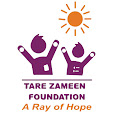It
has been observed that an increasing number of cases have been registered for
crimes against children in recent years. What is more alarming is the
significant percentage of these cases that are of sexual nature. A society that
is not safe for children is a society that is a threat to humanity and the
youth of the global village.
WHAT IS THE POCSO ACT?
POCSO act is the Protection of Children from Sexual Offences Act, 2012 that was
brought about to combat this phenomenon of an increasing number of sexual offenses
against children that plague the country. It is a comprehensive law that
provides “protection of children from the offenses of sexual assault, sexual
harassment, and pornography, while safeguarding the interests of the child”.
It
is supposed to work in child-friendly mechanisms to not cause further trauma to
the child and Special Courts are designated to ensure that the proper course of
action is maintained.
FEATURES OF THE POCSO ACT
The
POSCO Act is the first of its kind that has been introduced in India.
Therefore, it is necessary to peruse its features to gain a deeper and more
extensive understanding of the Act.
·
Definition of a Child - Anyone under the age of 18 is considered a child
under this Act.
·
Definition of an Offence – The Act defines any abuse of the sexual nature,
penetrative or non-penetrative, harassment, and pornography as an offense. Any
such assault which has been done by a person in a position of trust or
authority in relation to the child, such as a family member, relative, teacher,
police officer, family friend, etc, is punishable under this Act. The trafficking of children is also covered by this Act.
·
Provision of Punishment – If any such assault is found to have occurred, the offender is to be dealt with stringent punishment and as rigorous a term of
imprisonment and fine as the offense entail.
·
Police as Child Protectors – The Act provides that the police are to perform the
role of child protectors throughout the course of the investigation. The police
personnel who receive a report of a sexual offense of a child are expected to
show a prompt response in delivering the child to safety and protection. The
police are also required to bring any such report before the Child Welfare Committee
within 24 hours of registering the report.
·
Medical Examination
– The Act provides for the medical examination of the aggrieved child in a way
that causes as little distress as possible and in the presence of a person that
the child trusts. In case of a female child, the examination is to be done by a
female doctor.
·
Special Courts
– Special Courts are designated to conduct such cases. The trial should be in
camera and without revealing the identity of the child. Above all, the
procedures undertaken should be child-friendly. The cases filed are required to
be disposed of within a year since it has been reported.
· Gender-neutrality – The Act is gender-neutral. The Act is applicable regardless of the gender of the child and the offender.
· Mandatory Reporting – If anyone is aware of such an act that has taken place then it is mandatory for them to report it to the respective authority or juvenile officer. This is a legal duty and anybody who fails to do so faces up to six months of imprisonment and/or fine. The POCSO Act is significant because of its balanced and well-stipulated approach to instances of sexual abuse of children. However, the Act is yet to reach its full potential. Many such cases still go unreported because of reasons such as the perpetrator being a family member or fear of social stigma. The insensitive behavior of personnel responding to such a case can also be a huge deterrent in the reporting of these offenses.








1 Comments
The power of words is that a life can be launched with as little as a single phrase, an uplifting word or an act of kindness. Think of the power we wield and the impact we can make if we become more intentional about encouraging our children. Our words are often the very things that help create future dreams. And sometimes those dreams are to be just like us.
ReplyDeleteFree Treatment in Punjab